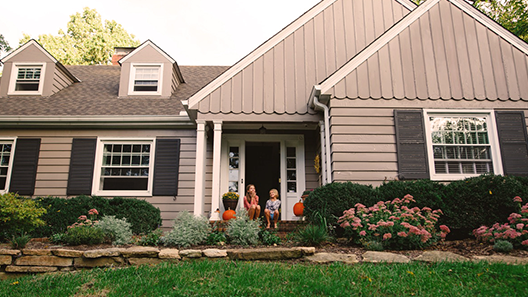Since purchasing a home may be the biggest investment you ever make, it’s no surprise that homeowners insurance exists to protect that investment from damage, theft, and a range of other circumstances. Sounds a lot like the other types of insurance you have, right? But don’t be fooled. There are a lot of working parts to it. And it’s typically not an option, but a necessity, since virtually all mortgage lenders require borrowers to have some level of coverage before closing on a home.

If buying homeowners insurance is on your radar, read on to learn about policies, premiums, claims, and more.
1. There Are Various Insurance Policies and Coverages
Depending on the insurer and where you live, policies can differ. With that said, an HO-3 policy is the most common type of home insurance, and gives you what is called “open perils coverage.” A peril could be theft, fire, or a tornado. Basically, it protects your home from all disasters, except those omitted in the policy. Then there is the HO-5, which covers more than a typical HO-3, including your personal belongings. Own a condo? There’s a specific policy for you, called an HO-6. There are several other policies, depending on the insurer. So be sure to review their policy list.
In addition to choosing the type of homeowners insurance you’ll need, you’ll also have to decide the level of coverage you want. Typically, there are three different options of coverage to choose from (minus your deductible). The more substantial the coverage, the more expensive the policy:
- Cash Value Coverage: Pays to fix or replace your property/possessions up to the policy limits, with a deduction for depreciation. It’s the least expensive option, though you probably won’t receive full repayment to rebuild your home or replace personal belongings should a serious disaster occur.
- Replacement Cost Coverage: Pays to fix or replace your property/possessions up to the policy limits, without a deduction for depreciation. This is pricier than cash value but means you could get full repayment for what you’ve lost.
- Guaranteed Replacement Cost Coverage: The priciest option, this coverage pays the cost to restore your home to the way it was before a disaster, regardless of the policy limit. Insurers typically extend the coverage to a certain percentage over the limit, typically between 20-25%. Coverage and availability can vary by state and by insurer.
2. Chances Are, Some of Your Things Won’t Be Covered
In most cases, there’s a limit of $1,000-$2,000 for coverage of your personal belongings should disaster or theft occur to, or in, the home. So if you lose a ring worth $5,000, you’re not going to be fully reimbursed.
On the plus side, that coverage is not just limited to the confines of your house. If your luggage gets stolen on vacation, there’s a good chance you’ll be covered up to the specified limits. Either way, pay close attention to insurers coverage details when shopping around.
Important: Flood damage isn’t typically covered in a homeowners insurance policy. if you live in an area prone to flooding, you may be required to purchase flood insurance separately.
3. Keeping Your Home in Tip-Top Shape Is Key
Insurers want to make sure your property is well-maintained so it’s not susceptible to damage. Therefore, if they conclude damage occurred because you neglected to maintain the home, your claim may be denied. Be observant of things like your water bill. If suddenly your bill is spiking, you may have a leak somewhere, and it should be addressed immediately.
4. Insurers Are Uneasy About Certain Family Dogs
Believe it or not, your furry one could be an issue when buying homeowners insurance, particularly if it’s a breed known to bite. With approximately 4.5 million dog bites occurring each year in the U.S., insurance companies are particular about which dog breeds they’ll cover. Depending on the insurer and the breed, this can result in a higher home insurance rate, or the dog being blacklisted altogether. Woof.
Get Started Today!
5. Surprise! Your Credit Matters
It matters a lot actually. Similar to a credit score, insurance companies use credit-based insurance scores to predict losses and determine which customers are more likely to file claims. This score will also evaluate your outstanding debt, length of credit history, whether you pay bills on time, etc. The higher your insurance score, the lower your premium will be.
The only states that prohibit the use of credit to determine home insurance premiums are California, Maryland, and Massachusetts.
6. Don’t Wait Long to Make A Claim
In the event you need to file a claim, don’t wait longer than 14 days to report it. Most policies have a two-week window to ensure the damage doesn’t worsen.
7. You Could Be Missing Out on Discounts
One way to save on your premium is by bundling your homeowners insurance with additional coverage offered by the provider, like auto or life insurance. Oftentimes, home improvements or enhancements, like updated windows or a new security system, could qualify you for savings. So be sure to ask about these discounts.
8. Document The Things You Own
Keep records of what you own by creating an inventory of your belongings and their appraised value. Include things like receipts, contracts, and appraisals, and store them in a secure place. If disaster strikes and you need to file a claim, you’ll be thankful you kept detailed records.
Your home is a major investment, and homeowners insurance gives you the protection needed from life’s unforeseen hardships.
To learn about other aspects of homeownership, be sure to check out these articles here.



